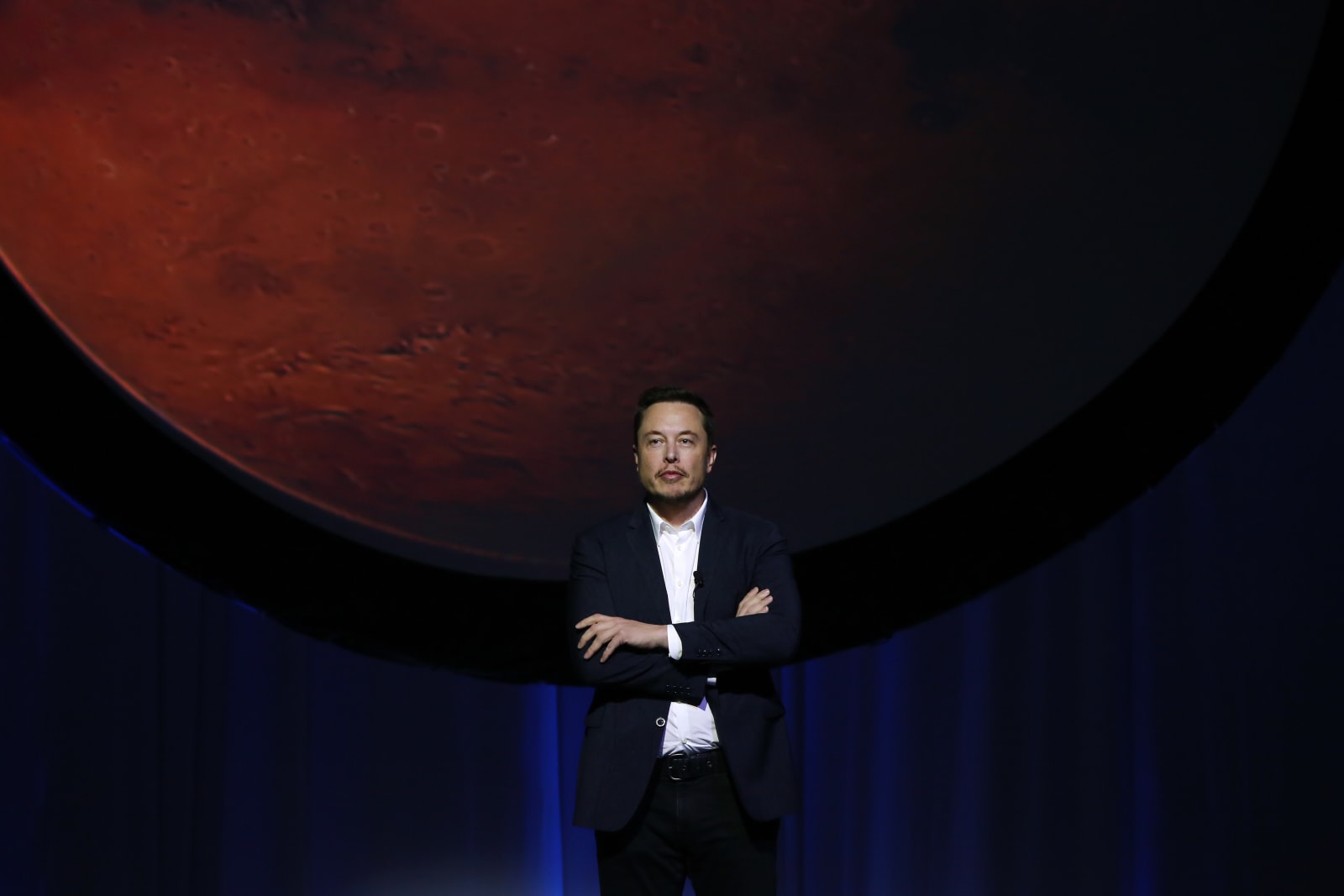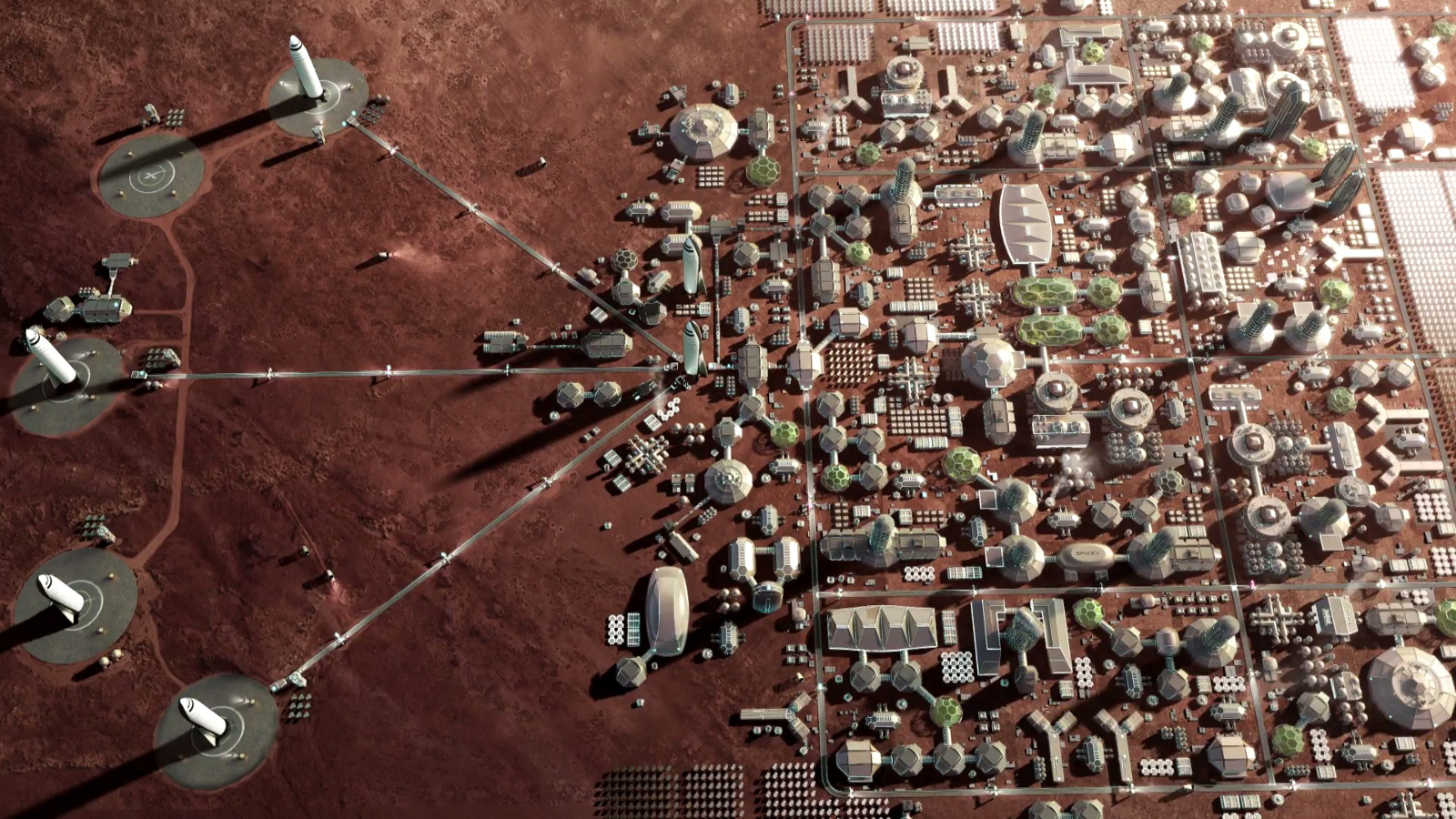How Elon Musk plays on our science fiction dreams


Elon Musk has said that he wants to die on Mars -- after it's been colonized by his company SpaceX.
He may not have the precise details yet, but Musk will figure the mission out in style: The SpaceX space suits are sleek and form-fitting, while his cherry red Tesla sports car will be aboard the maiden flight of the interplanetary Falcon Heavy rocket. Meanwhile, on Earth, he'll work on connecting our brains to computers through tiny electrodes, building underground networks of car sleds that function like a personal subway system, firing passenger trains through a vacuum tube at the speed of sound and replacing air travel with his Big Fucking Rocket (BFR) spaceship that gets passengers anywhere on the planet in under an hour. That's without mentioning his efforts to advance electric cars and solar energy. Or the fact that this week, he made $10 million in four days selling promotional flamethrowers.
With every outlandish company announcement or tweet, Musk can come across as a visionary, swindler or master publicist. But regardless, he grabs news headlines, customers place down payments on products they might not see for months, and Tesla's valuation climbs higher.
Musk's stories are irresistible, and a key reason is that he taps into the public's science fiction fantasies. For decades, sci-fi has shaped our very conception of what the future should be like. At a moment in which technology seems to be leading us toward a dystopia, Musk appears to be everyone's best shot at getting the future they've dreamt of.

"They're buying into his futurist vision of completely untraversed worlds and ideas and opportunities that no one can see or think of, but when he describes them, you're inspired," said Americus Reed, a professor of marketing at the University of Pennsylvania's Wharton School. "That's why science fiction is attractive to us. It takes us out of our comfort zone and opens up our mind to an entirely new way of thinking, a new universe of all kinds of whimsical and even in some cases frightening possibilities."
Reed studies the way that personal identity shapes purchasing behavior. In the case of Musk, consumers feel like they're investing in their future selves by buying Musk's products, matching who they are now with who they expect to be in a fantastical future. At the same time, they can vicariously become a little more like Musk, the visionary. Musk's name has become synonymous with -- if not bigger than -- his companies. To buy into SpaceX, Tesla or The Boring Company is to trust that Musk will make good on his vision of the future.
Musk's appeal as entrepreneur and technologist is not about what he does but who he is. At different times, he's been compared to industrialist Henry Ford, fraudster P.T. Barnum, inventor Thomas Edison and literal superhero Tony Stark. He is not only trying to remold the entrenched industries of automotive, energy and interplanetary travel but also, as writer Neil Strauss points out, to disrupt our very relationship with distance and time. He is, essentially, a geek icon.
"The decision to move from selling hats to flamethrowers to financing a massive tunnel boring operation is such a preposterous proposition that it's hard not to be charmed by it," said Dan Casey, senior editor at Nerdist and host of Muskwatch, a weekly online video series covering exactly what it sounds like. "There is a cult of personality around Musk that you don't see with similar wealthy tech magnates, CEOs and entrepreneurs. Jeff Bezos may be wealthier, and Tim Cook sits on the throne of an empire Apple products ... but they are straight-up boring compared to Musk."
In an age in which all tech entrepreneurs promise they have the keys to the future, Musk also offers something else: a "meaningful worldview." This was the conclusion of Ashlee Vance, author of the biography Elon Musk: Tesla, SpaceX, and the Quest for a Fantastic Future and a reporter for Bloomberg Businessweek. "Where Mark Zuckerberg wants to help you share baby photos, Musk wants you to ... well ... save the human race from self-imposed or accidental annihilation," Vance writes. Creating a sustainable ecosystem beyond our planet is Musk's organizing purpose, giving each of his projects an almost moral clarity.

Consumer trust in Musk is important for more than publicity. His products and services come from the future -- by nature, he's selling a dream that won't materialize anytime soon. Musk has a reputation for overestimating how many cars Tesla can produce while the upcoming Falcon Heavy test flight was initially slated for last summer. Tesla loses money -- nearly half a million dollars per hour, reported Bloomberg in November -- and the country's onetime most valuable automaker is often referred to as an overvalued "story stock."
Customers are funding the company too. Tesla has taken at least $400 million in deposits for the Model 3, the company's midrange sedan, even though production is behind schedule. "[Musk] appeals to the futurist in all of us, as we dream of what might be. And he's savvy enough to ask us to pay up front, thereby getting his customers to provide the funding for his dreams," said John Mullins, an associate professor of management practice at London Business School. This is why Musk needs a robust mythology: It not only raises capital from both his investors and individual consumers but also staves off the fear that his companies may be peddling vaporware. Perhaps when he sells trinkets like The Boring Company's flamethrowers and hats, it's also to remind us that his companies can produce tangible goods.
While Musk's sci-fi indulgences could easily be interpreted as pure marketing stunts, Vance, the biographer who spent a year with Musk for his book, says the entrepreneur believes in his grand concepts.
"There's no question to me that, at the heart of this, it is very genuine," Vance told Engadget. "Elon, you've got to remember, grew up as a rabid science fiction geek. He probably literally read every single science fiction book in his city, Pretoria, when he was growing up."
"When he says, 'I want to go to Mars and create a multi-planetary species,' to me, there is no gimmick behind that at all. That is his honest-to-God driving principle of life. It's the only thing that really explains why he was willing to risk all of his money and his time and his marriages and time with his children to do all of this stuff."
There is evidence that Musk is driven by more than riches. After his sale of PayPal to eBay, he took home about $180 million that promptly went into SpaceX, Tesla and renewable energy company SolarCity. In 2014, he announced Tesla would make all of its patents open source. Just last month, Musk said he would take no salary from Tesla for the next decade, only getting paid in shares if he hits wildly ambitious milestones (for living expenses, he borrows against his shares).
For sure, Musk knows how to publicize his star power, particularly to his 18.4 million Twitter followers. But disingenuousness on social media can be sniffed out in a second, and Musk can come across online as funny, eccentric and intelligent. "He's got kind of like a wicked sense of humor that I don't think people always appreciate," Vance said. "There's no way Ford's CEO is going to sell flamethrowers to the public. He's on his own level."
The real test of Musk's authenticity will be when his projects actually reach the market and evolve into something more than playthings for the rich. Right now, Falcon Heavy is set to launch in four days and Tesla's Model 3 is already rolling out. With hope, we'll soon know if the future Musk has got us all dreaming about is the reality we've long desired -- or sheer fantasy.
via Engadget RSS Feed "http://ift.tt/2EzwIC5"
Comments
Post a Comment